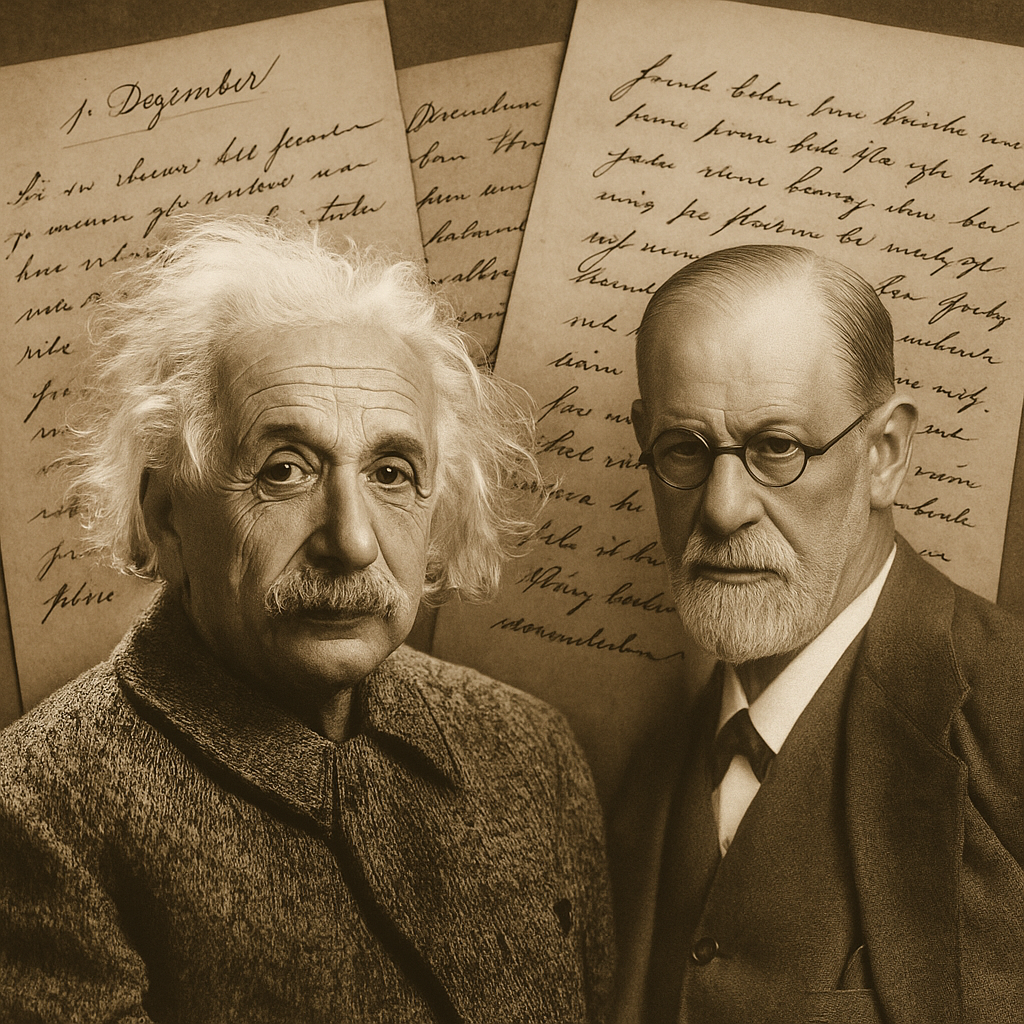The Einstein–Freud Letters: “Why War?”
Image generated by AI.
In 1932, as the world edged toward another global conflict, Albert Einstein wrote to Sigmund Freud with a question that feels just as urgent today:
“Is there any way of delivering mankind from the menace of war?”
Einstein approached the matter as a scientist and humanitarian, wondering if a structural, political solution could permanently reduce humanity’s tendency toward organized violence.
Freud, responding in his now-famous essay Why War?, acknowledged the possibility of political frameworks — but insisted we cannot ignore the psychological roots of aggression. His key points still echo in our era of proxy wars, cyberconflict, and polarized societies.
Freud’s Main Insights
Aggression is instinctual
Freud identified what he called the death drive — a deep-seated instinct toward destruction and domination.
This isn’t limited to individuals; it scales up into nations, fueling wars.
Peace requires a higher authority
Beyond treaties and alliances, Freud supported the idea of a supranational governing body capable of enforcing decisions — something like today’s United Nations (but with actual enforcement power).
Culture can redirect, but not erase, aggression
Laws, education, and shared values can channel our destructive instincts toward more constructive outlets.
Dialogue is essential
Without open conversation across differences, aggression festers and erupts.
Applying Freud’s Advice Today
Nearly a century later, the threats have evolved — but the patterns remain:
Military conflicts (Ukraine, Gaza, Sudan) remind us that national interest often overrides human interest.
Cyberwarfare and AI weaponization bring new fronts for aggression.
Polarization inside nations fuels “us vs. them” mentalities that can escalate to violence.
Freud’s lessons can guide us here:
1. Strengthen global governance
Support and reform international institutions so they can actually enforce peaceful resolutions.
Push for accountability in global law, so smaller nations have protection against larger powers.
2. Educate for empathy, not just skill
Invest in education systems that teach conflict resolution, cultural literacy, and emotional intelligence alongside STEM and trade skills.
3. Create cultural outlets for aggression
Encourage competitive but non-destructive arenas — sports, debates, artistic expression — where human intensity has a place to flow without harming lives.
4. Keep channels of dialogue open — even in tension
Diplomatic backchannels, citizen exchanges, cross-border creative collaborations — these humanize “the other side” and reduce the psychological ease of conflict.
💡 The MGLA Take
At MGLA, we believe Freud’s century-old advice is just as relevant to business, community, and personal relationships as it is to global politics:
Create structures that support fairness and transparency.
Acknowledge human instincts and work with them, not against them.
Channel competitive energy into growth, creation, and innovation.
Keep the conversation going — even when it’s uncomfortable.
Because whether between nations or neighbors, peace is never permanent by accident — it’s intentional work.
📩 What do you think? Is peace in our lifetime still possible?
Join the conversation: @mglainternational | info@mglainternational.com


